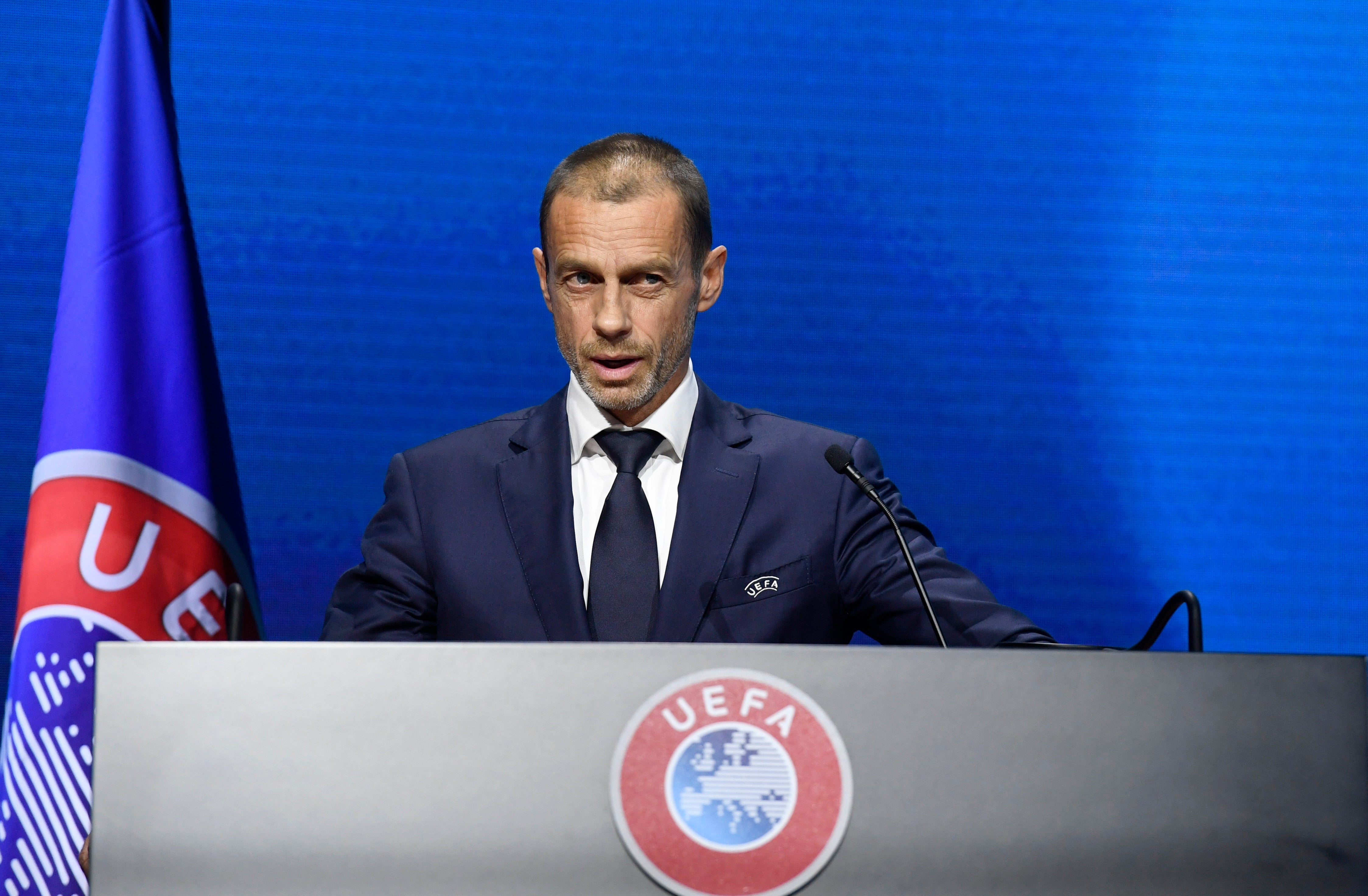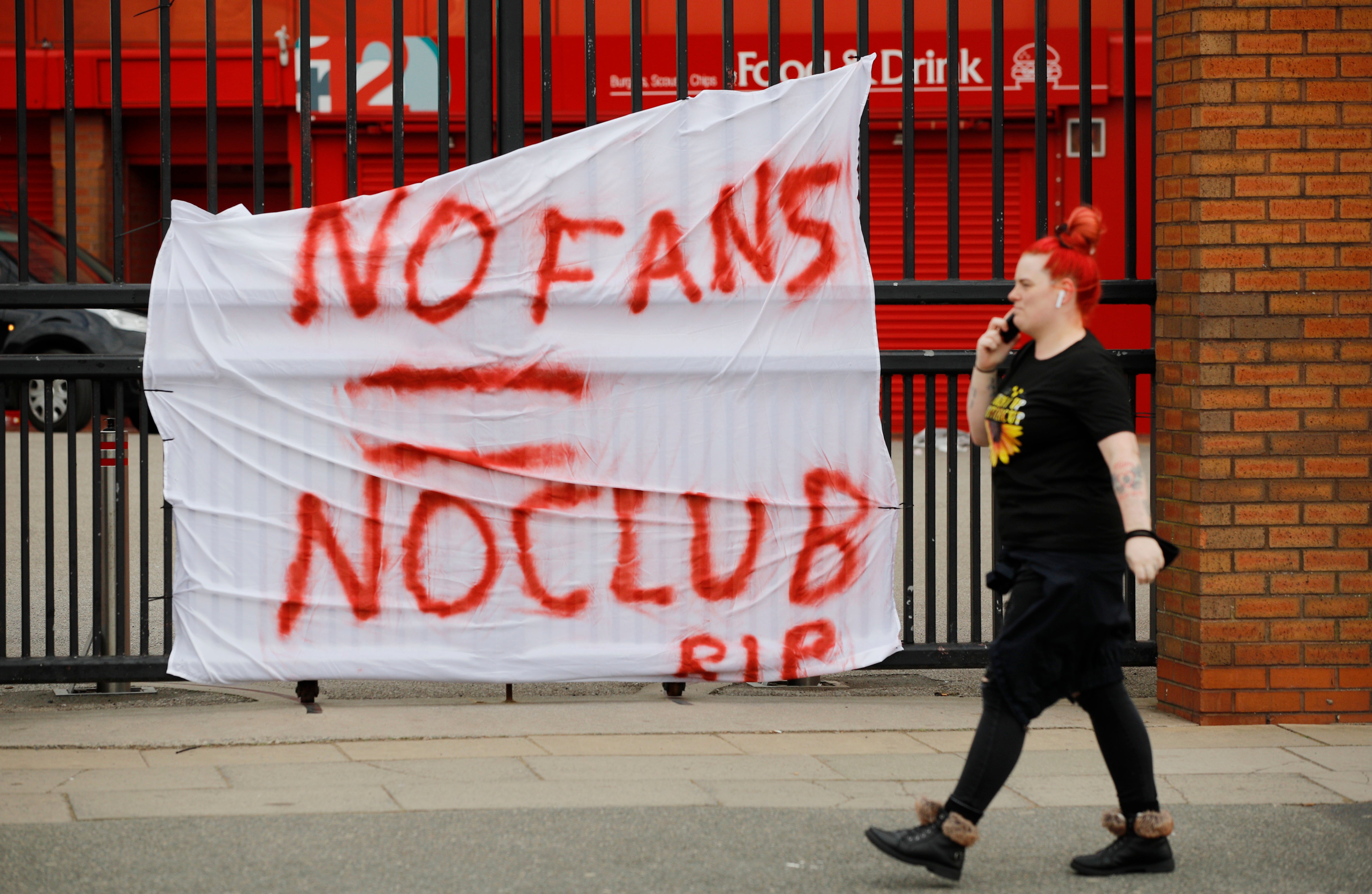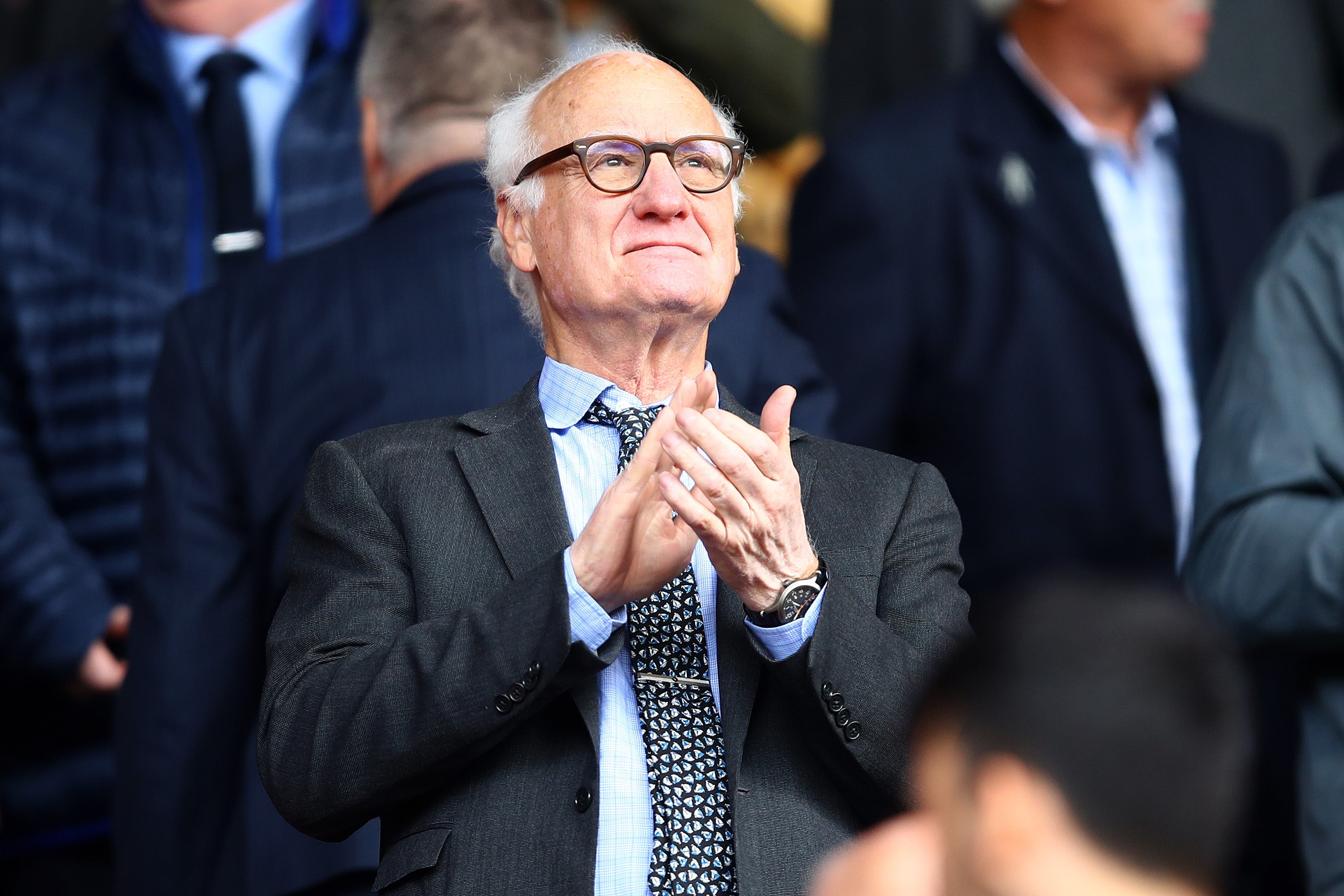
Anyone that thinks football is back to the old status quo, or that nothing has actually changed, could not be more wrong.
The sensational events of Tuesday night did not just kill ‘The Super League’. They killed the threat of a super league.
The immense effects of that cannot be overstated, but may actually be hugely under-appreciated.
The threat of a super league has been one of the most influential forces in European football over the last 30 years, and maybe the most influential.
It is the leverage - “the bargaining chip” - that has forced every single change that has benefitted the big clubs. Any time they wanted something, either in England or in Europe, they would just raise the prospect of a breakaway. Sometimes it would be subtle, sometimes it would be explicit. It would always allow them to ultimately get what they want, from tangible changes like greater proportion of revenue distribution to repeated changes to the Champions League, to more money, power and influence.
“That bloody super league”, one source said, “was the tool that created this massive imbalance in revenue distribution.”
It also created a “negative cycle” that increased disparity at every turn, to the point football’s unpredictability has been eroded. It was all done through incremental changes, until now, when the big clubs inexplicably went so large in such a haphazardly amateurish manner.
All they have ended up doing is illustrating that there is no market for their super league. The game has rejected it.
Many on the other side remain baffled by the nature of their big play, if also elated.
The big clubs destroyed their biggest source of leverage, and much of their credibility.
“Their credibility is currently close to zero now,” one source says. “They’ve been muted, and neutered.”
It is a brave new world. The other clubs, in both England and Europe, are absolutely relishing it. The “cartel” currently hold no threat. “They can tell them to go and do one,” in the words of one source.
The potential consequences of all this are close to unimaginable, and create a new world of possibility.
“We’re in uncharted waters.”

It is not an exaggeration to say it could lead to the eventual reversion of the Champions League to something closer to the 1990s, a much fairer resource distribution model, and maybe even more competitive domestic leagues.
That is a process that can be started by increasing solidarity payments - the prize money that goes to clubs outside Uefa competitions - which was something the big clubs managed to actually decrease at every cycle. As a basic example, that will allow weaker teams to hold on to better players longer.
The distribution model related to overseas broadcasting revenue is one of the first things the Premier League’s “other 14” want to look at, given it was loaded towards league position in 2018. From there, though, they will really go through almost every deal struck in the last decade.
One source involved in Premier League discussions says that “the other 14 have been let off the leash”.
There is a more “democratic” spirit to the competition behind the scenes. There is still a lot of politicking to do, too. Chelsea's Bruce Buck, for example, is still on the remuneration committee. Some from the other clubs would want him to step down, while other figures are “out for blood”. There is a desire for accountability.
The majority view among the 14, however, is to spare the clubs as institutions but potentially go for individuals.
There is much the same view at Uefa. The body’s president, Aleksander Ceferin, purposely didn’t name clubs in his extraordinary attack on the Super League on Monday. He went for individuals, like Ed Woodward and Andrea Agnelli.
The general view was that the clubs as institutions had been “exploited” by the people who happened to be in charge at this point in history. Uefa, like the Premier League, don’t want to punish staff and communities that had nothing to do with the breakaway plan.

Ceferin’s own position, like Richard Masters at the Premier League, has only been fortified. This has been a big victory for them. After initially being completely outmanoeuvred, they won by standing strong. Some deals had to be struck. Uefa ultimately got Fifa’s backing - which had been the subject of some suspicion - but many are watching whether any concessions will be made towards Gianni Infantino’s idea of an expanded Club World Cup. Uefa have also given the European Club Association a better deal around the sale of Champions League rights, and will try to take out a $6bn private equity loan to enable clubs to borrow money at lower interest rates.
Ceferin’s Monday press conference is seen as one of the key moments in the saga, for how it set Uefa’s position and also fired up the football world, creating further waves of greater opprobrium. “I’ve never seen anything like it,” one administrative figure says.
Many talked of being inspired by the spirit of the European Cup, as well as the prestige and emotion of the continental game’s history.
On that, there has been much reference to how the new Champions League “Swiss system” has been “smuggled through”.
This change has come as a response to the pressure of the big clubs, who wanted more games, but the reality is that Uefa also largely want it.
That isn’t quite for greedy reasons. More games involving big clubs will indeed bring more money, but Uefa knows it will need those resources to replenish the national federations and grassroots after the Covid crisis.
There is also a sense that it may not be much harm to at least experiment a little, after 20 years of the same format.
People may have to wait for any reversion, and instead endure a needlessly convoluted opening stage.
Other aspects may be addressed, though. Many involved immediately want to get the plan for four “wild card” entries revoked. Discussion of that on Friday will be instructive. The European Leagues body also want to reduce the number of fixtures.
These two elements can yet be vetoed before the 2024 cycle starts.
What might lead to the most profound changes, though, is the fact the pyramid hasn’t changed at all. It has stayed intact, and proven resilient.
This could have huge consequences, again connected to the very threat of the Super League.
One of the primary motivations behind it was that the owners - and especially the US owners - wanted to increase the valuation of the clubs. They have studied how the closed-shop nature of MLS means clubs trade at between eight and 10 times their revenue. The European clubs currently trade at just three to four times their revenue, due to the unpredictability of the game and the lack of economic guarantees.

The US owners wanted to do something that could increase this to five or six times their revenue at the stroke of a pen.
It was seen as something they were always ultimately building towards, the end game that may allow huge cash-ins.
Now, they’re not going to build value in the same way. They may well assess European football again, and see that is actually a mature market, with little scope for change.
That could well see some of the owners try to cash out now, and try and sell.
A stable and mature market, without the pressures of the big clubs constantly agitating, also has other benefits.
It allows the game’s decision-makers to get organised and concentrate on making football sustainable, as well as putting on a good show. They can start shaping reforms, like redressing the Champions League prize money that has ravaged some domestic competitions. That could potentially create a “virtuous cycle”, that in turn fosters a vibrancy and variety of competition across the game
We could eventually see a situation similar to the late 90s, where mid-tier clubs and teams from mid-tier leagues can be much more competitive; the kind of days when Dynamo Kyiv and PSV Eindhoven had an element of glamour about them, enriching the game as a whole.
It would be a far remove from a super league.
But then this new world is a far remove from the threat of a super league over the last 30 years.
It is, in the words of one figure from the top echelons of European football, "an absolute game-changer".







